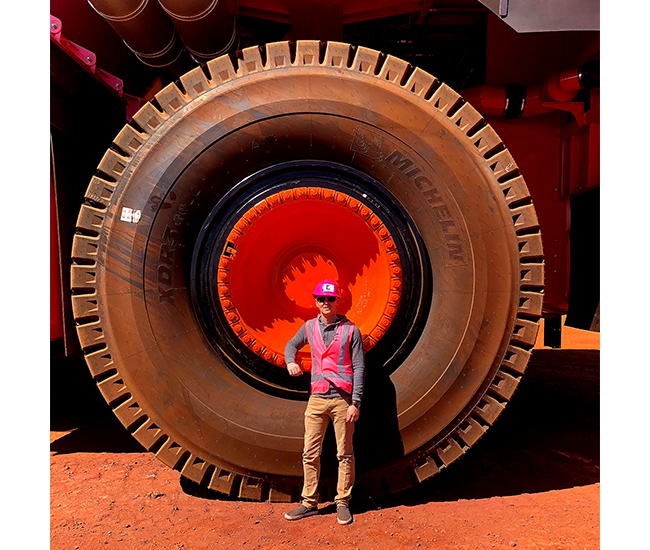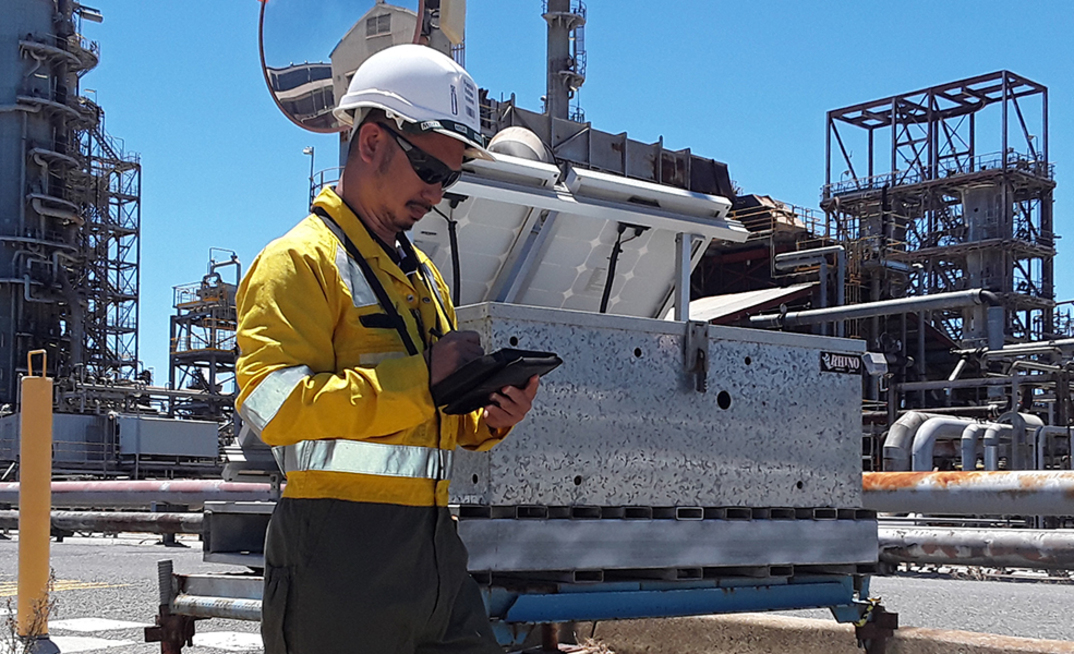The pandemic irrevocably changed workplace practices almost overnight. In early 2020, businesses across every industry were called to sink or swim in the unprecedented environment of COVID-19.
While some industries were hit harder than others, organisations in mining, oil and gas had some of the toughest challenges to overcome; from remote locations and workforces to hands-on sites with high safety requirements.
Digital strategies were put to the test. Companies with sound approaches already in place were quick to respond and embrace the challenge, while those still struggling with digital innovation were left scrambling.
Twelve months on and almost all operators now have some form of COVID-enabled rhythm. But despite the mostly successful pivot to online, Denver's head of digital execution Simon Charewicz warns that now isn't the time to get complacent.
To him, the opportunities tapped through effective digital strategy will become increasingly critical and that for many, remote working is just the tip of the iceberg.
"Remote working is not a new concept, but it has unparalleled potential. Unsurprisingly, it was the first ‘digital' port of call for many when the pandemic hit. The energy and resources industries have long relied on people to be out and about in the field, making real time decisions and understanding issues. This made their transition particularly difficult.
"While the new normal was at first a challenge, today's outputs tell a different story. By connecting operations and integrating production data and systems, we are finding more and more ways to drive safety and help businesses uncover new efficiencies in existing operations.
"COVID put a fire under conversation around digital and it's changed things for the better. When done right, a smart digital approach not only safeguards your operations today, but can define a business's culture, productivity and values for decades to come. In a time with so much uncertainty, your strategy becomes your security."

This thinking rings true for global energy provider bp, who has been harnessing the power of Denver's smarts since the early 90's. Today they engage the Australian company to deliver their digital strategy at speed across eight of their international refineries - aligning technology platforms to allow for iterative and repeatable processes to drive business value.
Charewicz noted that there are digital solutions for almost every need in the resource and energy sector. He says the trick is to focus not only on the ‘sexy' innovations such as artificial intelligence and robotics, but to also make better use of the assets you already have in play; including the data coming from underlying systems and your ability to mobilise and share that information.
"To us, good business is more than a discussion about what can be — it's also about delivering. The industries we serve have economically propped our country for decades and are likely to continue doing so in the years to come. With this there is a responsibility to act fast and with integrity."
One area that has seen the biggest benefit to Denver's clients through the pandemic is its Remote Expert solution - where specialist experts collaborate in real-time from home and office locations around the globe with field workers onsite.
"We are enabling business as usual practices through remote consultation. This delivers a safer, faster and more reliable work environment including guided task execution, on the job SME remote coaching and automated report creation. Mobile phones, tablet and wearable headsets are also used in the field to provide real time data visibility and over the shoulder support. Meaning teams can make informed, expert-guided decisions instantly and offsite."
Because these assessments can be done remotely, sites can continue to operate (without mounting overheads or border restrictions) on a lean headcount and with no impact on safety or procedure.
Expanding on this, he said, "Our aim is to not only free our clients' workforce, but to improve their operations after COVID too. As part of this, we're developing a tailored portfolio of productivity and engagement led mobile apps.
"This includes connecting mobile devices to key source systems to get end to end, real time visibility. A recent example for maintenance workers was enabling work order data on their phones so they can see the relevant information, as well as create work orders in real time, from the field or their homes.
He added, "Our clients who had this technology in place before COVID-19 hit were able to focus more on helping their people adjust to life in the new normal, rather than the mad dash to keep things moving forward. Conversations were not about what we can do to stay afloat, but how can we thrive — which is what we love to unlock."
2020 forced companies worldwide to not only increase agility, but to embrace an innovation-led outlook. It became the time to scale up and embrace tomorrow's technologies, or risk falling off the radar completely. As a result, connecting workers and embracing remote operations is now considered good business.
As borders re-open, travel increases and a degree of normality returns, optimising operations, quickly and with integrity will be essential. The question should not be whether remote working is a viable, long-term practice for oil, mining and gas operators, but how do we expand on the digital foundations laid during this time to become an industry leading digital change.
























